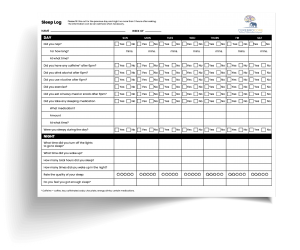HEALTHY SLEEP TIPS
Once you have a nightly goal based on the hours of sleep that you need, it’s time to start planning for how to make that a reality.
Start by making sleep a priority in your schedule. This means budgeting for the hours you need so that work or social activities don’t trade off with sleep. While cutting sleep short may be tempting in the moment, it doesn’t pay off because sleep is essential to being at your best both mentally and physically.
SLEEP HYGIENE TIPS
Improving your sleep hygiene, which includes your bedroom setting and sleep-related habits, is an established way to get better rest. Examples of sleep hygiene improvements include:
| SET A REGULAR SLEEP SCHEDULE | Go to bed and wake up at the same time each day. This helps you avoid sleep loss and sleep debt. |
|---|---|
| CREATE A BEDTIME ROUTINE | Your routine should help you relax and prepare for sleep. Avoid light from electronics in the hours before bedtime, as this light can delay sleep onset. |
| CONSIDER YOUR SLEEP ENVIRONMENT | Your bedroom should be a cool temperature and free of excess light and noise. |
| KEEP ACTIVE | Daily exercise and sunlight exposure help you sleep well at night. Avoid excessive exercise close to bedtime. |
| NAP EARLY | Naps later in the afternoon can make it difficult for you to fall asleep on time at night. |
| STICK TO A SCHEDULE | Sticking to the same sleep schedule every day, even on weekends. |
| PRE-BED ROUTINE | Practicing a relaxing pre-bed routine to make it easier to fall asleep quickly. |
| MATTRESS | Choosing a mattress that is supportive and comfortable and outfitting it with quality pillows and bedding. |
| MINIMIZE DISRUPTIONS | Minimizing potential disruptions from light and sound while optimizing your bedroom temperature and aroma. |
| DISCONNECT FROM SCREENS | Disconnecting from electronic devices like mobile phones and laptops for a half-hour or more before bed. |
| MONITOR YOUR CAFFEINE | Carefully monitoring your intake of caffeine and alcohol and trying to avoid consuming them in the hours before bed. |
You can try using our Sleep Diary or Sleep Log to track your sleep habits. This can provide insight about your sleep patterns and needs. It can also be helpful to bring with you to the doctor if you have ongoing sleep problems. A sleep diary is an important tool for evaluating a person’s sleep. Doctors often request a sleep diary, but some people may use one on their own accord.
By keeping a record of sleep, the diary makes it possible to calculate total sleep time. A sleep record also helps people identify sleep disruptions and other factors that can influence sleep quality. Identifying details about habits that affect sleep can show patterns that help explain sleeping problems.
SLEEP ENVIRONMENT TIPS
Our sleep routines wouldn’t be complete without the ideal sleep environment. In the era of working from home, it’s more important than ever to have a designated space for rest and personal time. There is a lot of different factors that play into the design of an ideal bedroom, and the following are some key ways to ensure the best night’s sleep possible:
| Keep the temperature of your room between 60-70° Fahrenheit |
|---|
| If you live in a noisy area, use earplugs or other noise cancelling devices to ensure your sleep is quiet and peaceful |
| Blackout curtains or a sleep mask can help keep your room dark during the early hours of the morning, or during the day if you are a shift worker |
| Make a habit of cleaning your sheets and blankets on a regular basis, and ensure that your bed has been made before going to sleep |
| Use a diffuser or incense to create a soothing aroma in your room, like lavender or lemon |
When it comes to sleep routines, it’s easy to focus solely on what happens in the evenings. However, how we start our days is just as important. The morning is how we introduce ourselves to each day, so getting off to a good start is a routine that takes consistency.
In the evenings, there are several routines that are often suggested, such as avoiding electronics 30-60 minutes before bed and avoiding heavy food and liquids as you’re nearing bedtime.
MORNING TIPS
Here are some tips for continuing those strong habits in the morning:
| Even on weekends, wake up around the same time as you do during the week |
|---|
| Give your body two full hours to wake up, as opposed to rushing out of bed into your daily obligations |
| Get outside for some vitamin D and daylight exposure as often as you can during the day |
| Skip the late afternoon coffee and cut off your caffeine intake by 2pm each day |
| If you can help it, avoid naps during the day. If you really need one, keep it to 30 minutes as early in the afternoon as possible |


